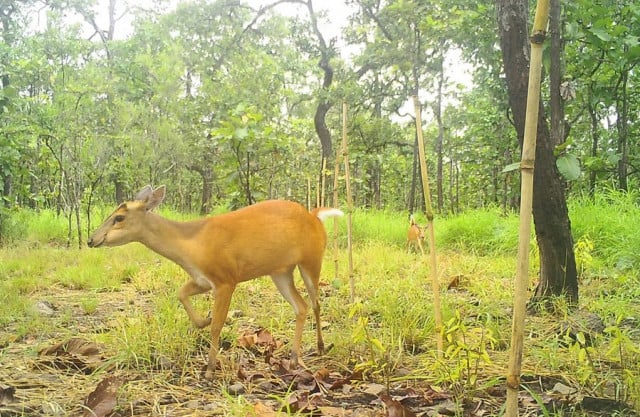China Plans to Invest in Cambodia’s Energy Sector

- By Teng Yalirozy
- October 17, 2023 1:57 PM
PHNOM PENH – Following the arrival in China of Prime Minister Hun Manet on Oct. 16, several Chinese companies announced they plan to invest in Cambodia’s power sector in the near future.
The PM is attending the third forum of the Belt and Road Initiative (BRI), which is being held in Beijing from Oct. 17 to 19. After his arrival yesterday, Hun Manet met with several of China’s large-scale companies to discuss investment opportunities in Cambodia.
Chinese State-owned firm China Datang Corporation, a large-scale power generation company, said it plans to invest $600 million in solar and wind power projects in the country. Zou Lei, the chairman of the company, said the investment was aimed at helping the implementation of the pentagonal strategy of the new government. Announced in August, the policy plans to base Cambodia’s development on five pillars: Growth, employment, equity, efficiency and sustainability.
The company has already invested $255 million in the 120 Megawatts Stung Atay Hydropower project in Koh Kong province and the Phnom Penh-Battambang 230kV Power Transmission Project.
A second company interested in investing in Cambodia’s power sector is China Machinery Engineering Corporation (CMEC), which plans to co-invest about $3 billion in the gas sector over the next 10 years. The company said it would invest with two other corporations, without naming them.
CMEC, a construction and engineering firm, is a subsidiary of SINOMACH, a state-owned company that specializes in water treatment, the energy sector and the development of infrastructures.
It has already invested in a number of projects in Cambodia, such as the Cambodia-China Friendship Medical Building at the Preah Kossamak Hospital, and a solar farm in Kampong Speu province.
Launched by President Xi Jinping in 2013, the BRI stands as one of the most ambitious infrastructure development initiatives aimed at fostering trade and economic development beyond Asia. Doted with $4 trillion, it invested in building supply chains around the world using ports, roads and trains as well as related operating systems and infrastructure.
Cambodia embraced the project in 2013.
China invested over $15 billion between 2012 and 2017, including $11 billion in Cambodia’s energy sector and infrastructure, including roads, ports, and airports.
Despite the economic slowdown caused by the COVID-19 pandemic, Chinese investments in Cambodia surged in 2021, reaching US$2.33 billion, a 67 percent increase from $1.39 billion in 2020.
China continued to be the largest foreign investor in Cambodia, contributing 73.8 percent of the $3.15 billion approved investments for 2021, according to data from the Council for the Development of Cambodia (CDC).
Besides investment opportunities in the energy sector, Hun Manet discussed the railway project connecting the new Siem Reap-Angkor International Airport to the city of Siem Reap with the Metro Company.
The airport, located around 40 kilometers away from the city, opened on Oct. 16 and replaced the former airport, which was only 5 kilometers away from Angkor Wat. This remoteness means that new transport solutions have to be found to allow visitors to easily access the archeological park.
The PM also discussed more investments in real estate, health and satellite with Charoen Pokphand Group and continuous investment with other companies.
This is Hun Manet’s second visit to China since he was appointed prime minister of Cambodia on Aug. 22, underlining the close ties between the two countries.
Last month, he said that “Cambodia's development in all areas is inseparable from the support of the Chinese government and people.”















